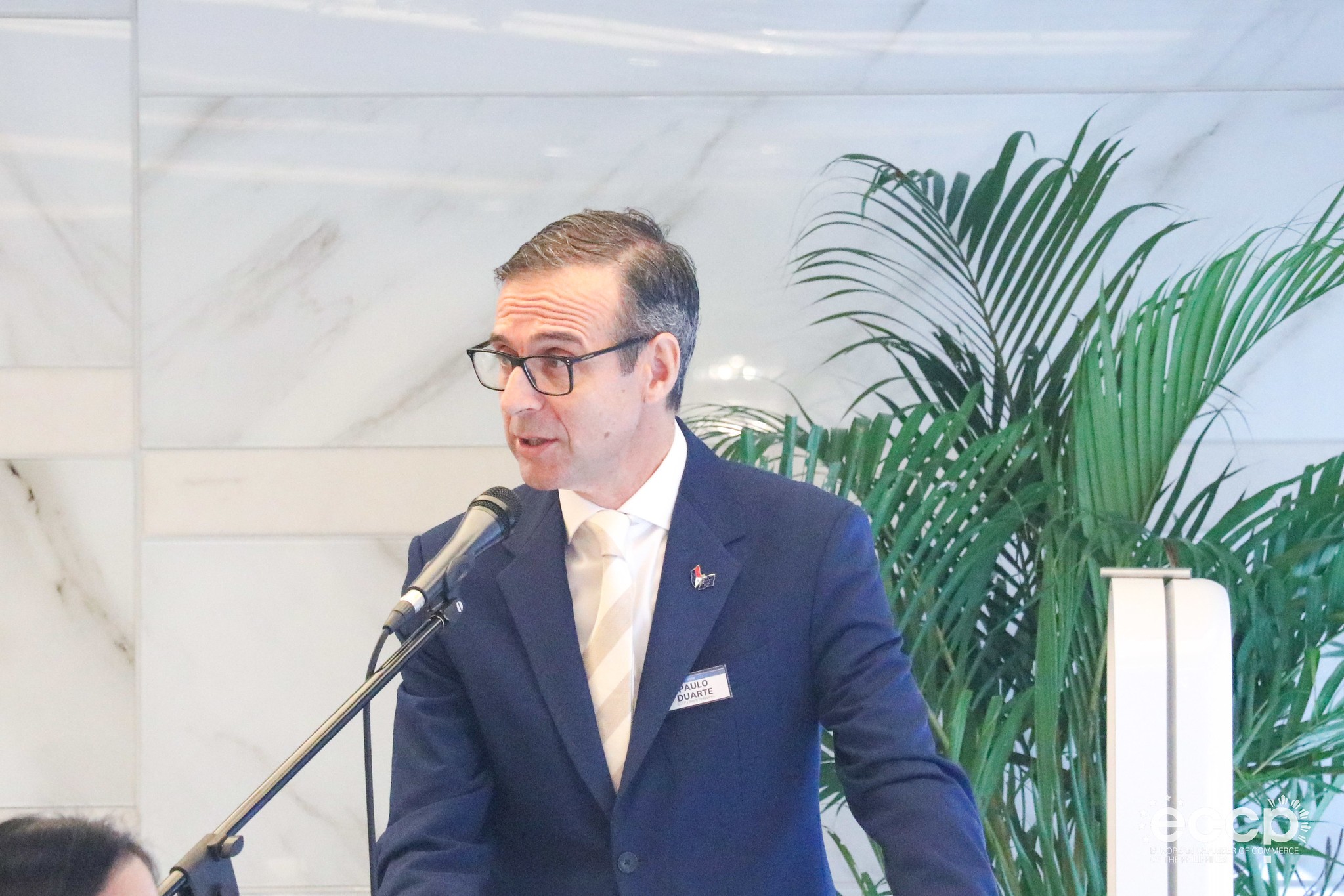
THE European Chamber of Commerce of the Philippines (ECCP) said the Philippine economy would power through in 2024 despite ongoing geopolitical conflicts such as the attacks on ships in the Red Sea and the war in Eastern Europe.
“I would say despite the macro economic global world’s turmoil as we know it, there are some impacts with regards to invasion of Ukraine by Russia, dispute in Palestine and Israel, then the dispute now in the Red Sea. Despite these, we remain positive with regard to the performance of the Philippine economy also for 2024; I think we have good elements,” ECCP President Paolo Duarte said at the launch of the Doing Business in the Philippines guidebook of the chamber on Wednesday.
According to Duarte, the chamber’s optimistic view towards the Philippine economy can be gleaned from the country’s assets such as having a median age of about 25 years old and a “growing middle class,” and the country’s “high proficiency” in English which he deemed “very advantageous” for business.
He noted that the Philippines is “poised to have among the highest, if not the highest [gross domestic product] GDP in Asean with about 5.3 percent growth or so, and also strong macroeconomic fundamentals, not to mention the strong cash flows from [overseas Filipino workers] OFWs.” Another reason for such optimism, Duarte said, is the “prospect” of the EU-Philippines Free Trade Agreement (FTA).
“Of course, we do not wish to pre-empt any of these official discussions between the EU and the Philippines. From ECCP’s side, we do hope to see the official resumption of the EU-PH FTA negotiations,” the ECCP president said.
Apart from these growth drivers, Duarte cited the government’s efforts in infrastructure development and digital transformation—both of which he called “crucial” in attracting investors and spurring economic development.
The ECCP president also cited economic reforms such as the amendments to the Public Services Act, the Retail Trade Liberalization Act, and the Foreign Investment Act, the liberalization of Renewable Energy investment activities. These, he said, will enable the country to “become more competitive and more attractive” for investments. “We understand from the total pie of foreign investments in Asean, the Philippines only gets around 4 percent,” Duarte said.
In his speech, the ECCP President said the Philippines is poised to “attract billions in foreign direct investments.” He cited the Board of Investments’ (BOI) “milestone” in 2023, as it surpassed the P1-trillion mark in investment approvals.
However, as he gave updates on the Philippines’s free trade agreement with the European Free Trade Association (EFTA), a four-member trade bloc, Norway’s Ambassador to the Philippines Christian Lyster, encouraged the Philippines to use “existing knowledge to identify areas with high potential” to increase its exports to EFTA countries. EFTA is composed of Iceland, Liechtenstein, Norway and Switzerland.
Lyster said there is an “underutilization” of the trade agreement because “it’s basically lack of knowledge and lack of knowledge on how to actually proceed using the agreement.”
“So it’s talking about it and making sure that both the Philippines and other countries interact with industry and businesses to make sure that they know about it, how to use it, and that’s that’s how we get the numbers up. And I’m really hopeful that we can do it in the years to come,” Lyster added.
According to Lyster, Philippine exports to the EFTA countries have been growing. In 2022, it surpassed €350 million while Philippine imports from EFTA countries posted the “highest ever” values, recording €433 million.
The trade deal between EFTA and the Philippines was signed in 2016 and entered into force in 2018.